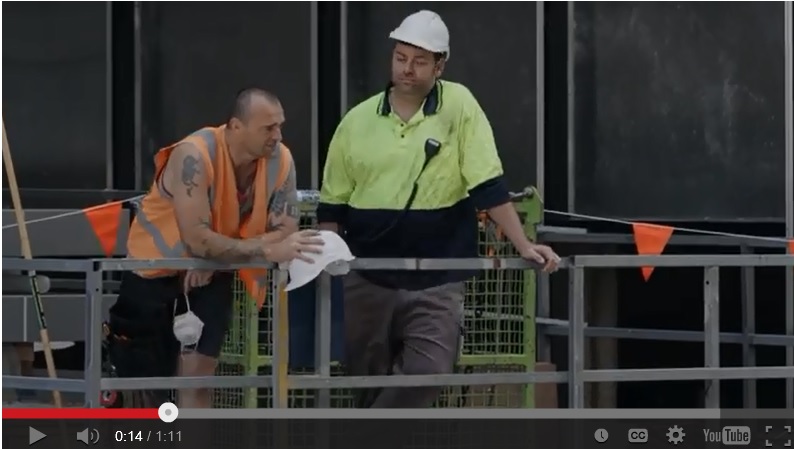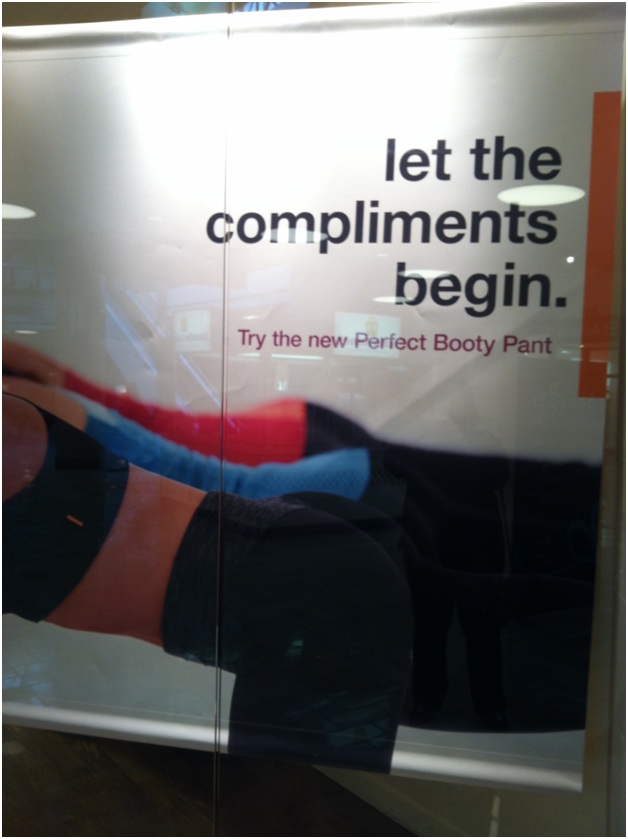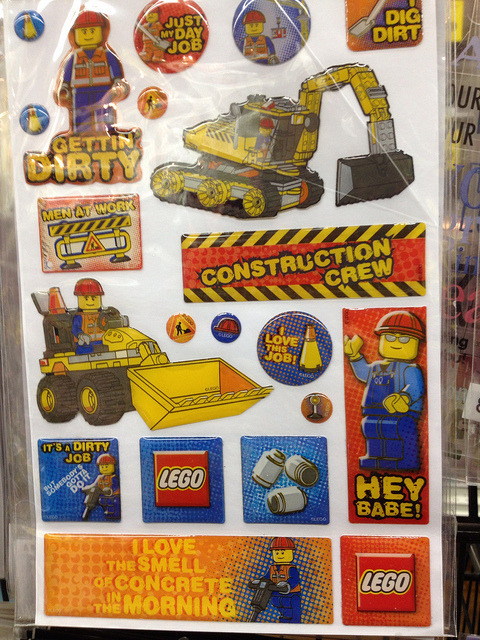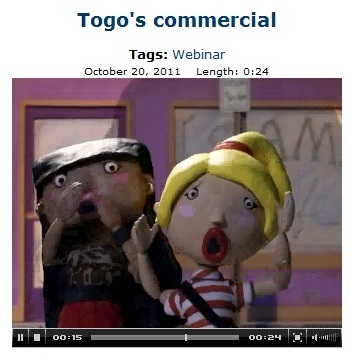Street harassment is a serious problem that limits people’s access to public spaces, yet society as a whole treats it like a joke, compliment, or no big deal. This is in part because that’s that’s how it’s portrayed by various companies.
This is an on-going list of companies who have trivialized street harassment in ads or products. You may want to consider this list before you go shopping!
The list concludes with our successes, the “reformed offenders,” companies who dropped offensive ads or products because of campaigns led by people who believe that street harassment – and all things that normalize it – must stop. Contact us if you have a company to add to the list.
Current Offenders:
1. Snickers 
Ad or product: A television commercial in Australia for their “You’re not you when you’re hungry” campaign shows construction workers yelling positive and empowering things at women walking by. Then at the end it has their tagline about how you’re not you when you’re hungry.
Why it’s problematic: The ad assumes that street harassment is “natural” for construction workers when in reality, harassment is learned, not natural. Many construction workers don’t harass women and many men in other professions do. Also, even if the men are yelling empowering things, they’re still yelling at women in public spaces who are just trying to go about their day. Men are not entitled to women’s attention.
What you can do about it: Sign our Care2 petition asking Snickers to pull the ad!
Year it was spotted: 2014 by Holly Kearl via Twitter
Ad or product: Their entire organization promotes the idea that it’s okay to approach women in public places in creepy, disrespectful and illegal ways (e.g. groping) just to try to “pick them up.” Examples: “This right here means you like to have your face jizzed on.” & “What is the biggest cock you’ve ever had up your asshole?” Check out their YouTube Channel for many more examples.
Why it’s problematic: The men seem to think the whole shtick is hilarious, often dressing up in costumes to carry out their acts. But they are acting without the consent of the women they approach and in general, street harassment is not funny — it is threatening, scary, and limits people’s access to public spaces.
What you can do: It may be hard to shut down the whole organization but we can work to get it removed from YouTube. Tell YouTube to remove Simple Pickup’s channel by signing our Change.org Petition, written by Julie Mastrine
Year it was spotted: 2013 by SSH social media volunteer Julie Mastrine.

Outstanding Offenders:
1. Fiat
Ad or product: A Super Bowl television commercial that compared a woman to a car that a man leered at and objectified. (Read more.)
Why it’s problematic: It promotes the idea that women are objects for men to covet, leer at, and want to “own.” It promotes the sexual objectification of women and makes light of the ogling street harassers that too many women face in real life.
What you can do: Contact Fiat and encourage them to never use this kind of ad again.
Year it was spotted: 2012.
2. Noxzema
Ad or product: An ad for their face wash, aimed at teenage girls and young women. (Read more.)
Why it’s problematic: The text suggests that women secretly love street harassment and so it’s okay for men to do it. It encourages the idea that women need male approval in order to feel beautiful. It also perpetuates the stereotype that construction workers are street harassers.
What you can do: Contact Noxzema and encourage them to never use this kind of ad again.
Year it was spotted: 2011.
3. Allstate
 Ad or product: A television commercial that was part of the Allstate Mayhem series. In this commercial, spokesman Dean Winters is jogging, saying, “I’m a hot babe out jogging…” Then you see a man in a car ogling the “hot babe” and driving into a lamp post. The commercial ends with the Winters saying, if you go with Allstate, “you can be better protected from mayhem like me” [meaning, the woman running].
Ad or product: A television commercial that was part of the Allstate Mayhem series. In this commercial, spokesman Dean Winters is jogging, saying, “I’m a hot babe out jogging…” Then you see a man in a car ogling the “hot babe” and driving into a lamp post. The commercial ends with the Winters saying, if you go with Allstate, “you can be better protected from mayhem like me” [meaning, the woman running].
Why it’s problematic: It turns street harassment into the butt of a joke when in fact, it is serious. Women even have been killed by men who are harassing them from their cars and then lose control of the vehicle. If they wanted to stick with this topic, they should have made the man who was leering at the woman the mayhem, not her. Women have every right to be in public spaces and if men choose to leer and harass them, that is the men’s fault, not the fault of the women.
What you can do: Contact Allstate and encourage them to never use this kind of ad again.
Year it was spotted: 2010.

4. lucy Activewear
Ad or product: An ad at a shopping mall which shows a woman bending over, wearing yoga pants, with the words: “Let the compliments begin. Try the new Perfect Booty Pant.” (Read more.)
Why it’s problematic: The ad reduces women to their body parts (butt) and it perpetuates the idea that women always dress to impress men and to receive “compliments,” even when they’re exercising.
What you can do: Contact lucy Activewear and let them know that street harassment isn’t a compliment! They’re also on Twitter.
Year it was spotted: 2013.
Now, let’s applaud the companies that reformed!
Reformed Offenders:
1. Burt’s Bees

Ad or product: The label on the company’s Güd Vanilla Flame Body Butter said, “Soak in the moisturizing seductiveness of shea butter and indulge in the scent of vanilla and rice milk. And let the catcalling commence.”
Why it’s problematic: It encourages street harassment and treats it like a compliment!
What’s happened: With customer Colleen Kiphart, Hollaback! launched a successful Change.org petition in November 2013. The company promised, “This product will only be on shelves while supplies last.”
2. TapBooty

Ad or product: TapBooty is a social app where users can gain rewards for playing trivia games, and answering questions and its ad on the Boston public transit system promotes touching women inappropriately.
Why it’s problematic: As Britni de la Cretaz, co-site director of HollaBack! Boston, said, “It absolutely promotes the idea of that type of harassment.”
What’s happened: Hollaback! Boston asked MBTA officials to remove advertisements from some of their trains “that they claim promote the objectification of women and non-consensual touching.” They also received media coverage for their online activism on this issue, including from the Boston Magazine. MBTA agreed to remove the ads from their system.
What you can do: Thank MBTA for taking action and if you see the ad anywhere else in Boston – or beyond – contact the organizations that bought the ad and ask them to remove it.

3. Lego
Ad or product: Construction-worker themed stickers for kids that includes a construction worker saying, “Hey Babe,” presumably to a woman walking by. (Read more.)
Why it’s problematic: The message to kids is that street harassment is okay, and the message to adults is that street harassment is just light-hearted fun you can joke about, not the serious issue that it actually is. The product also perpetuates the idea that it’s only construction workers who engage in street harassment and that all construction workers are street harassers.
Why they changed: Thanks to Josh Stearns writing about it and Erin Keller creating a Change.or Petition, plus tons of people taking to social media, Lego responded to Josh saying, “I am truly sorry that you had a negative experience with one of our products […] the product is no longer available and we would not approve such a product again.” Josh wrote, “That is an important statement, and I think it constitutes a real win.”
What you can do: Let Lego know your thoughts by contacting their offices or tweeting a message to them, @LEGO_Group.
Year it was spotted: 2013.
4. Bare Escentuals
 Ad or product: At the Nike Women’s Half Marathon in DC on April 28th, 2013, BareMinerals by Bare Escentuals enlisted a group of fraternity brothers to hold up inappropriate and sexist signs saying things like, “You Look Beautiful All Sweaty,” “Hello Gorgeous.” The signs are to promote their Go Bare Tour of America. (Read more.)
Ad or product: At the Nike Women’s Half Marathon in DC on April 28th, 2013, BareMinerals by Bare Escentuals enlisted a group of fraternity brothers to hold up inappropriate and sexist signs saying things like, “You Look Beautiful All Sweaty,” “Hello Gorgeous.” The signs are to promote their Go Bare Tour of America. (Read more.)
Why it was problematic: The signs reinforce sexism and tell women that no matter what they achieve, no matter how athletic or fast they are, it’s only their looks that matter. The company is telling men that it’s okay to say sexist things to women they don’t know on the streets. Additionally, women runners endure a lot of street harassment and they should be able to at least run a race they trained hard for in peace.
Why they changed: Sara Alcid created a Change.org petition and sites like Collective Action for Safe Spaces and SSH blogged about it + a lot of people voiced their displeasure over social media. Within a few hours, the company tweeted back, “We hear you and we are sorry 2 have caused offense during the #GoBare tour, we are not using the signs again.” Sara, CASS and SSH talked with them on the phone and in late May, met with them in person.
Year it was spotted: 2013
5. Skirt Sports & the companies that license their product
 Ad or product: A 5k race called “Skirt Chasers” where women start three minutes ahead of the men and it is billed as a “party that that happens to have a 5k in it.” Their tag line was “Chase. Catch. Party.”
Ad or product: A 5k race called “Skirt Chasers” where women start three minutes ahead of the men and it is billed as a “party that that happens to have a 5k in it.” Their tag line was “Chase. Catch. Party.”
Why it’s problematic: While there is nothing wrong with having fun, the name and terminology of “catch” and “chase” is problematic. In the SSH survey of 811 women, 75% had been followed or chased in a public space by someone they didn’t know. Aside from a man physically harassing them, this was the form of street harassment that was most scary.
Plenty of women runners have been chased (and even abducted, raped or murdered), including me. As a woman who is not a survivor of rape, being chased through a park at dusk was the scariest experience of my life because I feared that if I was caught, I would be raped. Fortunately, I outran him. Why would I, or any other woman who has had this experience, want to go to a party/5k where people are encouraged to “chase” and “catch” us?
Why they changed: Emails, blog posts, and comments on social media prompted them to rethink their messaging. While the name of the race won’t change, they have eliminated the “Chase. Catch. Party” terminology and removed the word “chase” other places too. Read more.
Year it was spotted: 2013.
 6. MarketFair Mall in New Jersey
6. MarketFair Mall in New Jersey
Ad or product: In June 2012, there was a sign spotted at MarketFair Mall in Princeton, New Jersey, that reads, “We apologize for the whistling construction workers, but man you look good! So will we soon, please pardon our dust, dirt, and assorted inconveniences.” (Read more.)
Why it was problematic: Sexual harassment in the workplace and in schools is illegal, so why was a Mall encouraging their construction workers to harass female customers?
Why they changed: A Change.org petition that garnered 1500 signatures in about 24 hours and pressure via social media and blogs like Jezebel and Huffington Post. A call to the mall informing them about this resistance and outrage resulted in the removal of the sign that night.
Year it was spotted: 2012
7. Yes to Carrots

Ad or product: The container of one of their face washes promoted the idea that street harassment is something to desire happening. (Read more.)
Why it was problematic: Street harassment is not a compliment! The company is based in the northern California, one of the only areas in the United States where street harassment has been studied. The study found that 100% of women had been harassed in public spaces – including whistling – and they didn’t like it! Also, only a few weeks before the product was spotted, a man stabbed a woman in San Francisco after she ignored his verbal harassment on the street.
Why they changed: @SafeSpacesDC, @LisaMcIntire, @StopStHarassmnt and @iHollaback took to social media and within a few hours, Yes to Carrots tweeted back, “We’re sorry about this offending statement. We’re 100% going to change this, we only want to be positive!“
Year it was spotted: 2013.
8. Togo’s Sandwich Shop
 Ad or product: A television ad that featured a sandwich that flashed two women. The women look horrified initially, and then start laughing, purportedly at the small size of the sandwich’s contents. The voice over says, “Don’t settle for puny…” and then goes on to praise the new sandwich. (Read more.)
Ad or product: A television ad that featured a sandwich that flashed two women. The women look horrified initially, and then start laughing, purportedly at the small size of the sandwich’s contents. The voice over says, “Don’t settle for puny…” and then goes on to praise the new sandwich. (Read more.)
Why it was problematic: The ad trivializes the fear women feel from street harassment, including flashers (exhibitionists). Thirty percent of exhibitionists also commit acts of direct sexual violence against women. While the clay women in the commercial laughed it off, making this a humorous subject wears down many real women’s ability to object, resist, and to stand up to this form of sexual harassment.
Why they changed: After posting about the ad on the Stop Street Harassment blog, several people e-mailed the company. Within a few days, the marketing project manager for this California restaurant chain sent SSH the following email:
“I am writing with regard to your post regarding Togo’s TV commercial on the Stop Street Harassment site. It was never our intent to trivialize sexual harassment. We appreciate your dedication to stopping harassment of women and want you to know that the ad is no longer running.”
Year it was spotted: 2011.
Thanks, Renee Davidson and Katie Broendel for initiating several of these campaigns.

